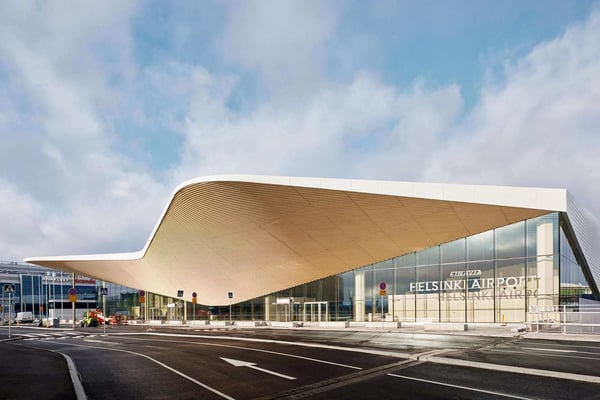Despite the damaging effect of the COVID-19 pandemic on the aviation industry, the focus toward zero-emission aviation has never been shifted, and actually, many new initiatives have been launched, such as Sustainable Aviation Fuels (SAF), electric-hybrid and hydrogen-powered aviation initiatives, use of data to cut the fuel consumption or maintenance needs. Though acknowledging that most of the operations are still highly dependent on fossil fuels and non-sustainable sources of energy, here are some initiatives by leading European airlines.
British Airways is a part of the first airline group globally (IAG) committed to becoming carbon net-zero by 2050. As an industry leader, the airline has a clear and well-defined plan for decarbonizing aviation. In the short term, they are already investing in a new aircraft that has up to 40% more fuel efficiency compared to the older models. British Airways is powering its main bases with 100% renewable electricity and offsetting the CO2 emissions of all domestic flights. All UK domestic flights have been carbon-neutral since 2020. International flight passengers have an opportunity to calculate and offset their flights also. In the medium term, British Airways are investing in the unique Sustainable Aviation Fuel plants to increase the availability of this replacement to fossil fuels. British Airways and Velocys are sponsoring the project of building Europe’s first commercial plant that will convert household waste into jet fuel in the North of England. By 2030, IAG airlines group promises that 10% of flights will be powered by SAF. British Airways are also investing in research and innovation initiatives that will decarbonize the aviation industry in the long term. One of them is zero-emission aircraft ZeroAvia and carbon capture technology.
Despite the dramatic impact of the pandemic, for KLM Royal Dutch Airlines, sustainability remained a top priority. Already in 2019, KLM introduced the Fly Responsibly sustainability initiative. The initiative includes fleet renewal, operational improvements, carbon offsets, and contribution to SAF. In 2021, KLM added 25 new Embraer 195-E2 to its fleet. These new aircraft have 31% fewer emissions per passenger than their predecessors. In addition, the airline participated in trials for sustainable taxiing and operated the world’s first commercial flight powered by a fuel mixture containing synthetic kerosene. KLM also allows passengers to compensate for a part of a flight’s impact with a reforestation initiative, a nature-based contribution to offset CO2 emissions.
Virgin Atlantic has ambitious carbon targets to achieve net-zero emissions by 2050. As a sustainability leader, the airline operates one of the youngest twin-engine fleets. Virgin Atlantic has made a significant investment in fleet transformation, resulting in a 20% reduction in fleet carbon emissions. New technology and innovation are also a priority for Virgin Atlantic. They have been partnering with LanzaTech already since 2011, flying the world’s first commercial flight operated on sustainable fuels in 2018. In addition to that, Virgin Atlantic is a founding member of Sustainable Aviation and the UK’s Jet Zero Council. Airlines bring industry and government together through the Clean Skies for tomorrow initiative to speed up SAF development.
LOT Polish Airlines also has many sustainability initiatives that significantly impact reducing CO2. This airline has one of the youngest and most modern fleets in Europe and takes environmental protection seriously, implementing several projects on board and on the ground. For example, LOT supports the Forest Carbon Project and reduces CO2 emissions by applying an external electric power supply (GPU) instead of a fuel supply (APU) at the airports. In addition, LOT invests in flight planning, fuel savings, and data analysis software to make operations more efficient and sustainable.
Though radical changes won’t happen overnight, progress towards a green future is up and running. The aviation industry is definitely up to the challenge and has a clear plan to achieve an ambitious goal of net-zero carbon emissions by 2050.


 David Ellis
David Ellis
 If you are interested in knowing how you can improve your efficiency in maintenance operations, book a 30-minutes discovery call with us.
If you are interested in knowing how you can improve your efficiency in maintenance operations, book a 30-minutes discovery call with us.

